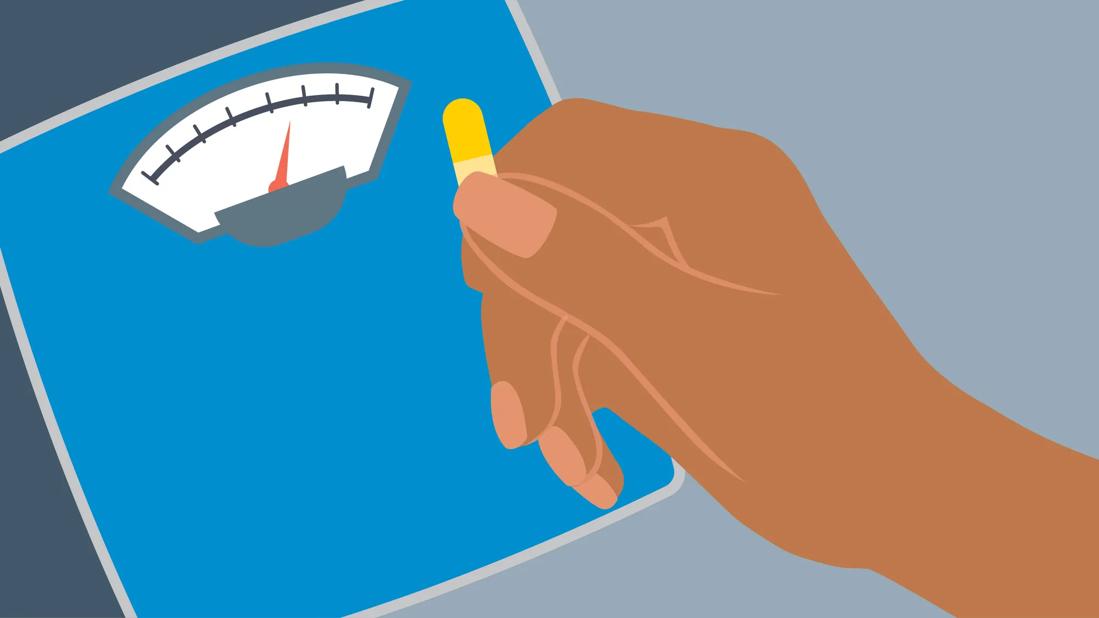Berberine for Weight Loss: Does It Work?
If you’re looking for a way to lose weight, you may have heard of berberine, a traditional Chinese medicine (TCM) that’s been used for more than 400 years, mainly to treat diarrhea and other gastrointestinal infections.
Advertisement
Cleveland Clinic is a non-profit academic medical center. Advertising on our site helps support our mission. We do not endorse non-Cleveland Clinic products or services. Policy
There’s been curiosity around berberine supplements, leading some to even name it “nature’s Ozempic.”
But when it comes to berberine for weight loss, are the results impressive enough that you should try it?
Functional medicine specialist Layth Tumah, MD, explains what the research shows around berberine and weight loss.
Does berberine help with weight loss?
Early research indicates that berberine may help reduce body fat.
In one small clinical trial that looked at treating nonalcoholic fatty liver disease, participants who took berberine every day for three months experienced significant weight loss.
Berberine differs from herbal weight loss products, which often lack substantial data. Its effect on weight loss stems from its impact on insulin and glucose. When most people think of insulin, they think of blood sugar management. But insulin also regulates fat and protein metabolism.
“If you have insulin resistance, the cells are inefficient in removing sugar from the blood despite normal or high levels of insulin,” explains Dr. Tumah. “Chronic exposure to high insulin levels — which is an anabolic hormone — can affect weight and metabolic syndrome.”
But before you start a berberine supplement, Dr. Tumah cautions that more studies on how berberine affects weight loss are needed.
How it may work
When you take berberine as a pill or powder, it enters your bloodstream and travels to your cells, binding to different molecules. But instead of producing a single change, berberine interacts with multiple targets, impacting more than one disease at a time.
“Berberine works at a cellular level and changes how cells work by turning signals off and on,” Dr. Tumah further explains. “Its basic interactions involve so many different processes in the body.”
When it comes to weight loss, berberine may improve how cells respond to insulin (insulin sensitivity), promoting better movement of glucose into cells (glucose uptake). It may also impact how glucose gets used. By avoiding long-term elevated insulin, its anabolic effect can be regulated and minimize fat accumulation in the body.
Berberine also activates an enzyme called AMP-activated protein kinase (AMPK). AMPK exists in every cell. Its primary job is to regulate metabolism, helping manage how your body breaks down and uses energy. But AMPK can also influence body fat composition, and it plays a critical role in regulating your appetite.
How to take berberine for weight loss
Berberine supplements come in pills, powder, gummies and drops. If you’re interested in taking berberine supplements for weight loss, you should speak with a physician and use a brand that’s been verified by third-party sources as high in quality.
And remember that supplements like berberine aren’t regulated by the U.S. Food and Drug Administration (FDA). And berberine can interact with certain medications, so it’s important to speak to your healthcare provider before starting berberine.
How much should you take?
Dr. Tumah recommends that you start slowly and at a low dosage. Once you know how you react to berberine, the goal is to take 500 milligrams up to three times a day.
What’s the best time to take berberine for weight loss? Berberine supplements aren’t meant to be taken with food, so opt to take your three doses before or in between meals.
How effective is berberine?
There’s some preliminary information out there, but it should be taken with a grain of salt, states Dr. Tumah.
“A 2022 review of 18 studies that examined the effect of berberine on body weight and 23 that examined its effect on body mass index (BMI) found significant decreases in both weight and BMI in people who took berberine,” he shares.
More recently, an umbrella review of 11 meta-analyses revealed that berberine significantly affects factors like blood glucose levels, insulin resistance and body composition as compared to controls.
“However, more research is needed to fully understand how berberine may impact weight,” Dr. Tumah reiterates.
Risks of taking berberine for weight loss
The most common side effects of berberine include:
- Nausea
- Abdominal discomfort
- Constipation
- Diarrhea
Some people may not experience any side effects. But for those who do, consider reducing your dose, which will help ease and reduce any side effects.
If you’re pregnant or breastfeeding, you shouldn’t take berberine. Berberine isn’t recommended for children or babies either.
Bottom line?
It’s important to note that berberine, as with any supplement, shouldn’t replace any medical treatment. Dr. Tumah emphasizes that it’s vital to talk with a healthcare provider before starting berberine or any other supplement.
“Obesity, and weight management, is a complex condition, and it’s often due to many factors. If you take a berberine supplement as your only way of addressing weight loss, it’s not going to be as efficient or enough to achieve your goals,” he stresses. “It should be combined with lifestyle modifications such as following a well-balanced diet, regular exercise and/or medication, if needed.”
Source link
Share this article:



